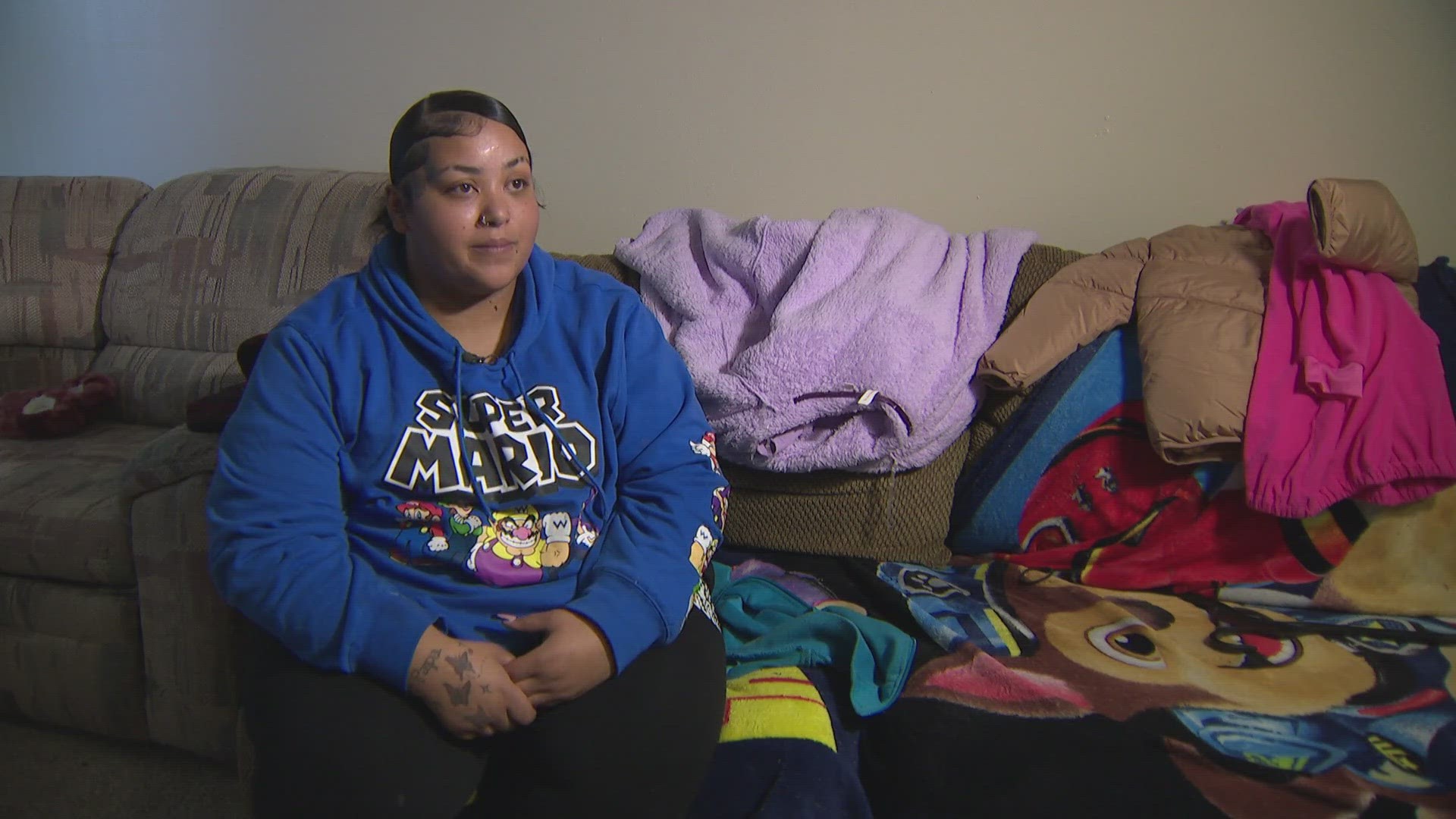AURORA, Colo. — When cold weather arrives in Colorado, it's important for renters to know their rights. It’s a landlord’s job to make sure homes are fit to live in, which includes providing heat inside when the temperature drops outside.
For more than a week, Kayla Rager has been living in an apartment with no heat. She and her sister moved into The Richfield Apartments in Aurora in September. She recently learned that the boiler for her building has been broken. Rager’s neighbors tell her it hasn’t worked for months.
“Me and my sister will sometimes just cuddle up together just so our body heat can keep each other warm,” she said.
Rager and her sister have spent hundreds of dollars on new space heaters, wood for the fireplace, and warm clothes to keep from freezing during the night. She said neither of their kids are staying with them because it is too cold inside their home.
“Me and my sister just work so hard to make sure that our kids can be somewhere, and now we don’t have heat,” she said. “We don’t want them in a cold house. We just want a warm, cozy home and everything to come together, but right now it’s not.”
As a renter, Rager is protected under Colorado’s Warranty of Habitability. Jeff Peshut is well-versed in the law. He is an assistant professor of finance and director of real estate at Metropolitan State University of Denver.
“Under the statute, the premises are uninhabitable if they lack functioning heat,” Peshut said. “If the premises are uninhabitable, then the landlord has breached their Warranty of Habitability. That breach provides the tenant with certain remedies.”
Before any remedies can be made, a tenant must give the landlord a written notice stating the issue. From there, and depending on the issue, the landlord has 24 hours to find a solution. If they don’t, Peshut said, that is when the remedies come into play.
“They can stop paying rent,” Peshut said. “They can terminate the lease and move out. They can go to court and ask the court to tell the landlord to fix the problem. They can sue for money damages. They can also, as part of their recovery, recover reasonable attorney’s fees.”
Rager took that first step and sent the leasing office a written notice. A few days later, Rager and her neighbors received a letter from the leasing office, which reads in part, “The heat/boiler is currently in the process of being replaced.”
Rager said she’s been trying to get an update on the progress, but when she calls the leasing office, she immediately gets disconnected.
“It’s just like a slap in the face,” Rager said. “We’re just trying to get ready for the winter that’s ahead. These past few days have been really cold so we can only just imagine.”
9NEWS also reached out to The Richfield Apartments leasing office and got disconnected. When we went there, we were told “no comment,” and that their attorneys would be contacting us.
For help finding an affordable attorney, check out the Colorado Law Project at the University of Denver or Colorado Legal Services.
SUGGESTED VIDEOS: Latest from 9NEWS

